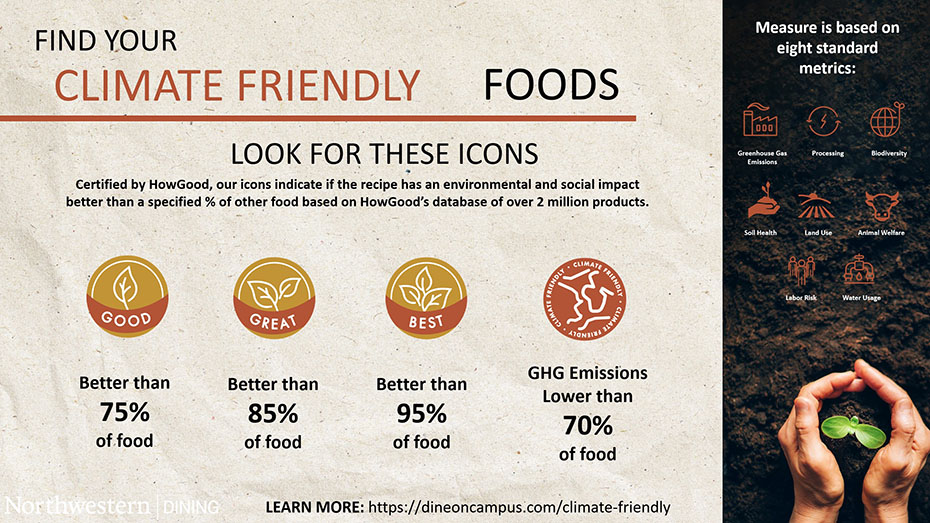Eating for the Planet
There are many ways to reduce your individual environmental footprint. What you eat is one area where your choices can make a difference. A plant-forward diet has a smaller environmental impact compared to a meat-based diet; however, many other factors are relevant when considering the food we eat. Greenhouse gas emissions, water usage, land use, and labor are all contributing factors to the environmental and social impact of food.
With all of these considerations, figuring out how to eat for the planet can be complicated. To help, a new system implemented by Northwestern Dining empowers people to make more sustainable choices. In partnership with HowGood, Dining is working to identify the environmental and social impact of individual menu items. HowGood is an independent research company that has analyzed more than 30,000 ingredients, chemicals, and materials associated with food products to provide impact assessments of recipes.
The HowGood system uses a “good”, “great”, “best” scale and includes a climate friendly attribute rating when the dish’s associated greenhouse gas emissions are lower than 70% of products assessed by their rating system. Keep an eye out for the labels providing a rating for various dishes in the Northwestern dining halls. Over time, Dining aims to expand the number of dishes that are rated.
Food is important to us: culturally, physically, even emotionally. Being able to make informed choices improves understanding and can better align our food choices with personal priorities. If you eat in the dining halls, look for these symbols for a better understanding of the impact of our meals.
